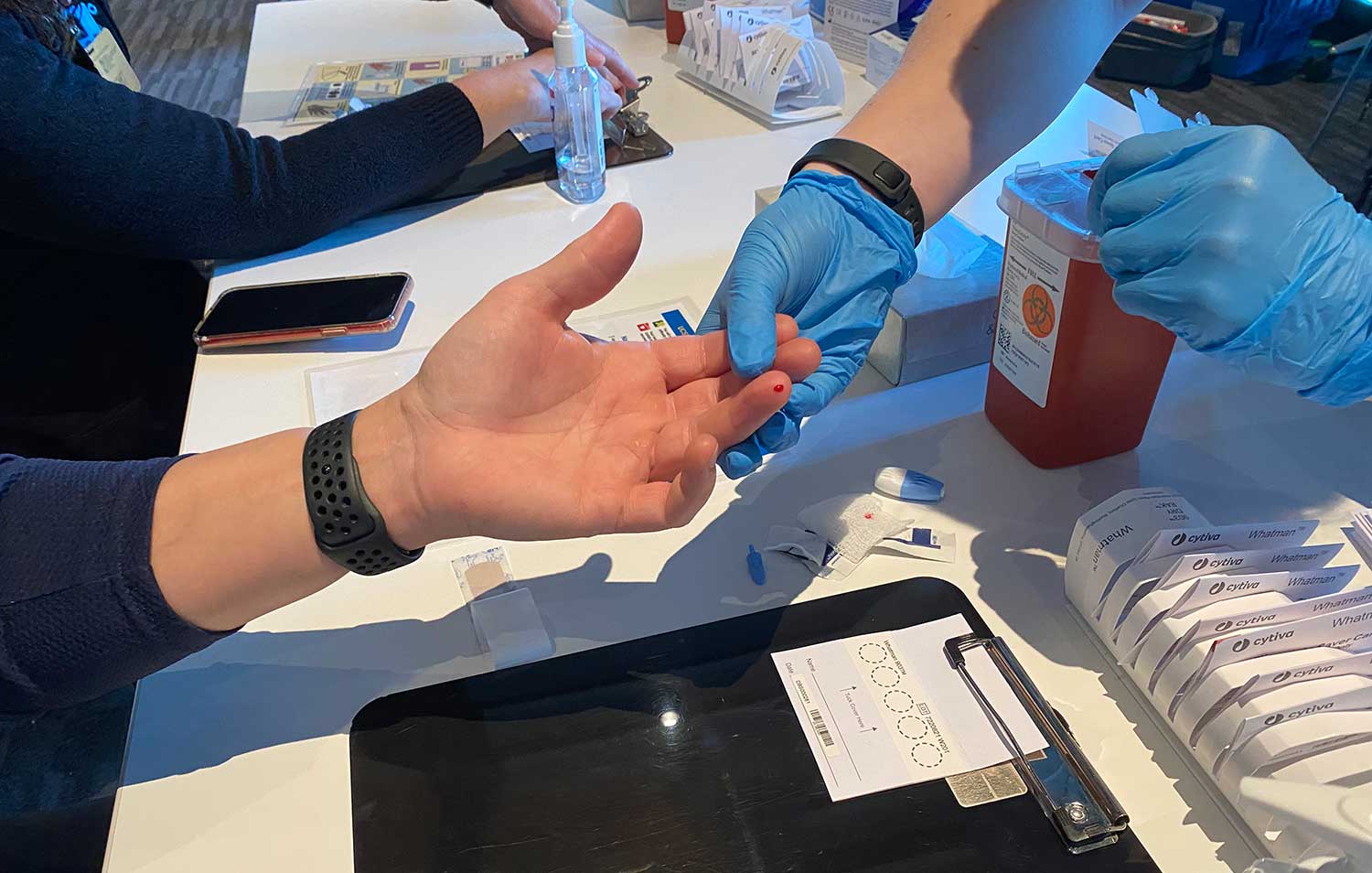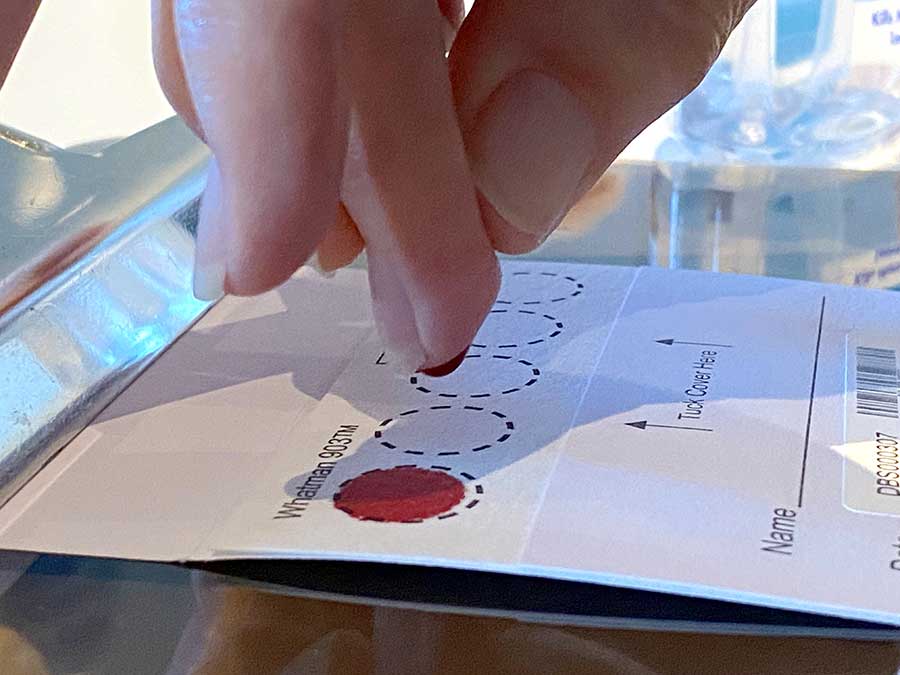
By:
- Corey Levitan
Published Date
By:
- Corey Levitan
Share This:

As part of the ZAP COVID-19 Study, a UC San Diego employee has blood drawn through a fingerstick device at Jacobs Medical Center at UC San Diego Health.
How Protective are COVID Antibodies?
Campus volunteers needed for largest study to date to understand Covid-19 immunity.
The University of California San Diego is conducting what is believed to be the largest research study yet of SARS-CoV-2 antibodies and the protection they impart against contracting COVID-19.
The ZAP COVID-19 (NeutraliZing Antibody Project for COVID-19) is a two-year study designed to enroll up to 20,000 volunteer participants from UC San Diego’s diverse body of students, faculty and staff.
“UC San Diego has been a leader in mitigating the spread of COVID-19 not only on our campus but also in our regional community,” said UC San Diego Chancellor Pradeep K. Khosla. “This study is the next logical step in our ongoing efforts to keep our campus and community healthy, confident and productive.”
UC San Diego’s campus is ideal for a study of this magnitude because of the diversity of its students and employees. The study’s findings will help inform the university’s public health policy by providing additional data concerning the risk of infection.

Study participants are asked to contribute enough blood droplets to fill at least one circle on this card, but are encouraged to fill more if possible.
“Our aim is to determine whether levels of neutralizing antibodies, a measure of a person’s immune response, to SARS-CoV-2 can be used to determine a person’s risk of contracting COVID-19,” said principal investigator Marni Jacobs, assistant adjunct professor in the Department of Obstetrics, Gynecology & Reproductive Sciences at UC San Diego School of Medicine. “When faced with infection, we want to know how well your body will neutralize it. We also want to understand how levels of neutralizing antibodies change over time following vaccination or prior infection.”
By comparing levels of neutralizing antibodies present in blood samples with participants’ corresponding vaccine and/or prior infection status, based on their UC San Diego Health medical records, the study will track how antibody levels wax and wane over time and how long they confer protection from infection.
“This is critically important because of the many unanswered questions we still have about this virus,” said Dr. Christopher Longhurst, chief medical officer and chief digital officer at UC San Diego Health. “If the virus is going to recur every year, for example, will previous infection and vaccination continue to protect you? And how does natural infection compare to protection conferred by vaccines, both in people who are getting infected, who are vaccinated and people who are not?”
This is the first time UC San Diego has offered a clinical research study to all of its more than 40,000 students and 35,000 employees exclusively, said the researchers. It is also the first time that all research, scheduling and consent are being handled through the university’s electronic health record.
“This is critical proof-of-concept for us because it lowers the cost of doing research 10-fold and makes it easier for people to use,” Longhurst said. “As a result, we expect our recruitment numbers to be high.”
Study participants receive a free PCR COVID-19 test and then provide a few drops of blood drawn through a fingerstick device. They may be contacted up to every three months for follow-up visits, during which the same procedures may be performed. (Participation in any of these visits may be declined.)
For more information on the study and how to enroll, visit ZAP COVID-19.
Share This:
You May Also Like
Stay in the Know
Keep up with all the latest from UC San Diego. Subscribe to the newsletter today.


